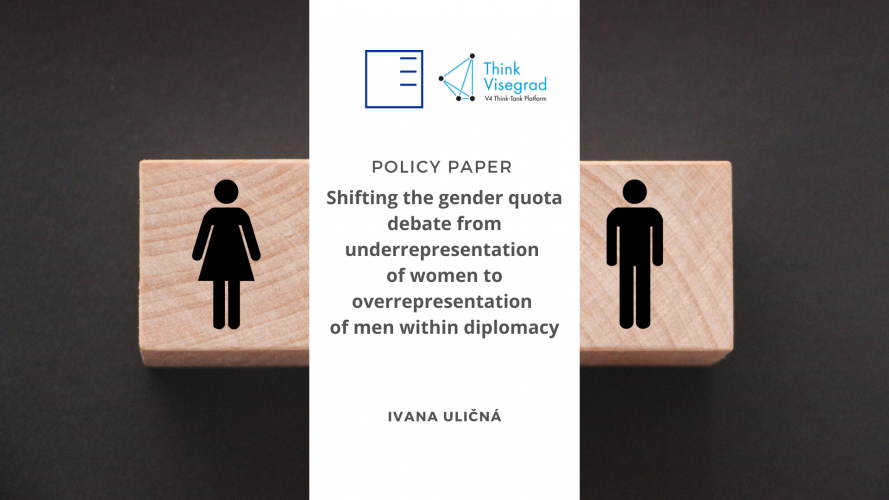POLICY PAPER | Shifting the gender quota debate from underrepresentation of women to overrepresentation of men within diplomacy
Ivana Uličná writes about the fact that even though some progress has been made towards gender equality in diplomacy, women remain underrepresented in ambassadorial positions worldwide. Quotas have been effective in boosting nominal representation of women but critiques focused on quotas being tokenistic and harming meritocracy place a double burden on women. However, even the current system is not meritocratic, as men benefit from a historical advantage and assumed competence, while women must justify their presence, prove their worth and disprove gender stereotypes.
Only around 23.1 percent of all ambassadors, arguably the most coveted diplomatic appointment, are women, which leads to an estimated 38 years until parity in representation. While it could be expected that this number decreases in time, it has actually increased by 8 years in 2022 (SheCurity Index, 2022). The situation is slightly better in the EU with 18 years until parity in 2022 compared to 26 years in 2021, but the number remains unsatisfactory.
You can find the full article through the PDF button.
This policy paper was produced within the Think Visegrad in Brussels Fellowship programme.
Staroměstské náměstí 4/1
Prague 1 - Staré Město
110 00
tel.: +420 212 246 552
email: europeum@europeum.org
https://www.europeum.org

